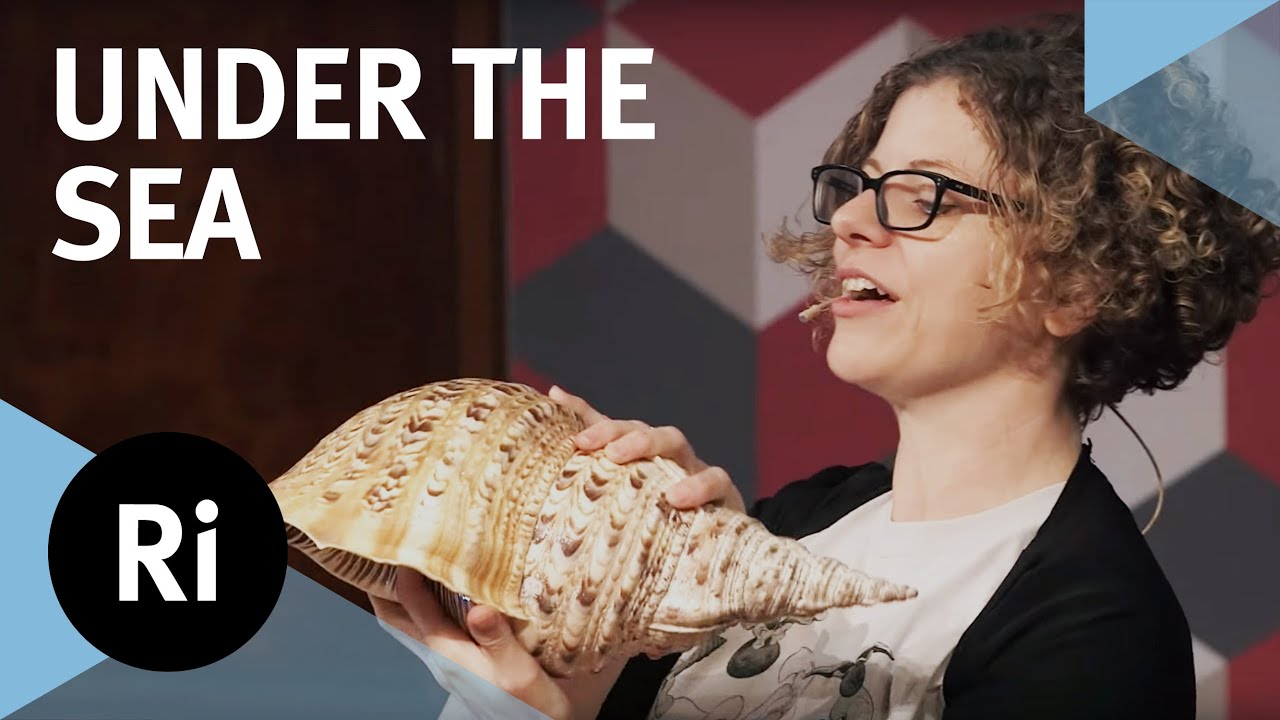The Royal Institution
A dive into the spiralling world of seashells and the bizarre animals that make them. Helen Scales explains how hermit crabs like to party and butterflies learnt to swim.
Watch the Q&A: https://www.youtube.com/watch?v=GqBHjBDgLfY
Subscribe for regular science videos: http://bit.ly/RiSubscRibe
From shell-stealing octopuses to snails that suck sharks’ blood, molluscs are a weird bunch. Join marine biologist Helen Scales to find out how hermit crabs like to party and butterflies learnt to swim. This interactive talk dives into the spiralling world of seashells and the bizarre animals that make them.
Helen Scales is a marine biologist, writer and broadcaster who manages to combine scuba diving, exploration and storytelling in one job,along with a passion for protecting the oceans. She spends as much time as possible by the sea, or preferably in it.
She writes books and articles and make radio documentaries, searching for stories about the oceans and the natural world, of the wonders of science and of people.
Subscribe for regular science videos: http://bit.ly/RiSubscRibe
The Ri is on Twitter: http://twitter.com/ri_science
and Facebook: http://www.facebook.com/royalinstitution
and Tumblr: http://ri-science.tumblr.com/
Our editorial policy: http://www.rigb.org/home/editorial-policy
Subscribe for the latest science videos: http://bit.ly/RiNewsletter
Source




Amazing !
Helen Scales is interesting and attractive!
Such a wonderful presentation, and what a wonderful presenter! Helen Scales is not only knowledgeable, but also has a good sense of humor with a nice taste for the mildly macabre. 🙂
Thank you!
It's like having a trip to the museum, with beer in my pj's
Earth's surface is ~70% water not 90%.
Aristotle is remarked to have said "No great mind has ever existed without a touch of madness." What a brilliantly mad and passionate lecture.
Those sea snails create impressive houses – each a unique masterpiece. Upon that all this without any lectures about architecture, any tools and without a complex brain. Just amazing.
90% is covered in deep blue ocean?
…and that makes you qualified to talk?
…sorry, with all due respect, I refuse to continue watching.
This was really interesting talk! Thanks a lot!
She is so passionate about the topic, wonderful presentation!
You're never far from a mollusc…love it!
Redistributing shells for British crabs. Pretty sure that's why Corbyn is so popular. 😉
I think this is the way a presentation on a scientific subject, to the lay audience should be. I hope speakers would emulate Helen Scales.
Lol shell trumpet… What it should sound like check in context of Hinduism.. We have had eons of practice to perfect it.
Hermit Crab cueing hilarious and awesome
Great exposure of marine life….however, there are no "creatures"…in the ocean, or anywhere. There are animals. Let's get the "creation/creatures" ideas out of our language…and our science lectures!
Has anyone mentioned Monty Python's Molluscs sketch yet?
34:26 Has anyone mentioned the Gas Cooker sketch yet?
Under the sea with Helen SCALES? HAHAHAHAHA, I'm not buying that.
Fantastic presentation, thank you. shells could grow along suture lines too? my blog biomathcraft.blogspot has models and equations, esp fibonacci series.
I unwillingly share Ri channel with my friends hoping RI would flourish. I'm greedy of the knowledge I get here.